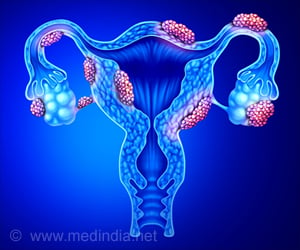A study has revealed that a biological mechanism that affects the immune system is what makes many women experience remission of autoimmune diseases like multiple sclerosis during pregnancy.

The study also reports that expression of the enzyme is lower in pregnant women compared to those with pre-eclampsia, a condition with inflammatory components.
The study is significant because the newly discovered mechanism points to a pathway that could be targeted for treatment.
"It may be possible to design drugs that mildly suppress pyruvate kinase activity as a means of replicating the immune status of normal pregnancy," said Petty.
In addition to pre-eclampsia, he believes that rheumatoid arthritis, type 1 diabetes, and uveitis may eventually yield to similarly designed drugs.
In his search to explain the phenomenon, Petty knew to look for a metabolic pathway or mechanism with two characteristics-it had to "dial down" the intensity of the normal immune response, an action needed so that a pregnant woman does not reject the foetus, which has proteins from the father that are "foreign" to the mother. At the same time, such a mechanism must support cell growth needed by the developing foetus.
Advertisement
Because pyruvate kinase activity is depressed during pregnancy, cell metabolism supports an increased production of lipids, carbohydrates, amino acids, and other substances that support cell growth.
Advertisement
When pyruvate is decreased during pregnancy, calcium signalling is also reduced, and the immune response is different than that in non-pregnant individuals.
"Modification of signalling along this pathway allows the pregnant woman to maintain an immune response, but at a level that will not harm the foetus," said Petty,
The study included 21 women in their third trimester of a normal pregnancy, 25 women with pre-eclampsia, and a control group of non-pregnant women.
The researchers used a variety of methods to confirm their findings, including fluorescence microscopy and flow cytometry, which are used to study cell signaling.
The higher levels of the enzyme seen in women with pre-eclampsia bolster the study's findings, said Petty.
"Pre-eclampsia has features of inflammatory disease. If you don't reduce these pyruvate levels, you heighten inflammatory disease," he added.
Petty is hopeful that one day enzyme levels could be tested early in pregnancy to predict the likelihood of developing pre-eclampsia or other complications.
The study appears online ahead of print in the August issue of the American Journal of Reproductive Immunology.
Source-ANI















